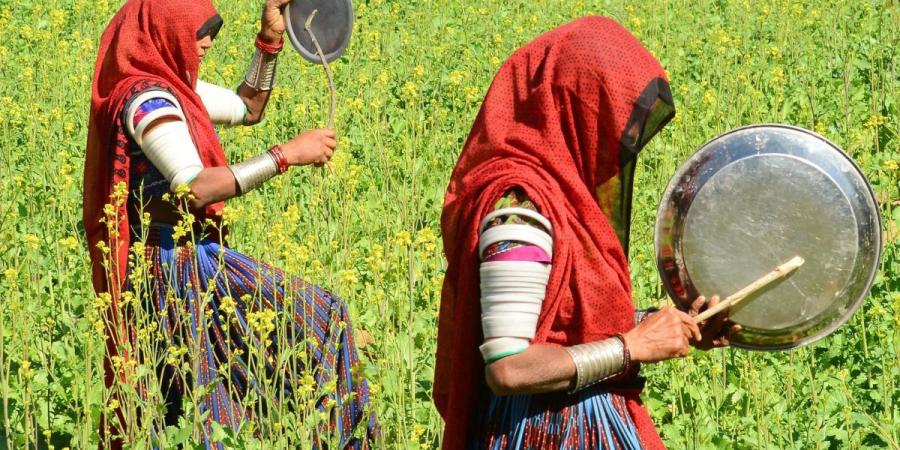‘Make Noise and Don’t Panic’: India Tries to Ward off Locust Invasion
ENVIRONMENT, 8 Jun 2020
Amrit Dhillon | The Guardian - TRANSCEND Media Service
Delhi braces for swarm while farmers in badly-hit north play loud music and honk car horns to try to prevent decimation of fields.
28 May 2020 – Residents of Delhi are bracing themselves for a possible invasion of locusts, which have been ravaging areas in the north of the country.
A change in wind direction could save the city, but Dr K L Gurjar, deputy director of the Locust Warning Organisation, has warned residents to be prepared to “make a lot of loud noise so that instead of settling, they keep flying and fly past the city. And don’t panic”.
Parts of India are experiencing the worst locust invasion the country has seen for 25 years. Skies above large parts of north India have darkened during the day due to millions of locusts. Rajasthan is the worst affected state, but Madhya Pradesh, Gujarat and Punjab have also experienced damaging swarms.
The UN Food and Agriculture Organization’s locust watch website said the movement of the locusts has been affected by the strong westerly winds from Cyclone Amphan, which hit the coast of India earlier this month.
About 50,000 hectares have been affected by the insects so far. While produce in some parts of the country had already been harvested, in other areas farmers have seen the insects devour their crops. Unless the locusts are controlled, they fear summer crops could also be destroyed.
“We are hoping to contain it in the next 10 days,” said an official in Barmer, in Rajasthan. “Our officials are out spraying pesticide early in the morning. When the sun comes out and [the locusts] get warm is when they start flying. This year, they are younger, immature adults who fly faster and cover distances of up to 150km per day.”
On Monday, swarms were spotted in the city of Jaipur in Rajasthan.
Gurjar hopes the change in wind direction will spare Delhi.
Neighbouring Pakistan declared a nationwide emergency in February after swarms devastated parts of the country.
India’s agriculture ministry is hoping to control the invasion before monsoon season hits north India at the end of June, when locusts mature and breed. If the infestation is not controlled, it may threaten summer crops such as rice, maize and sorghum.
____________________________________________________
Amrit Dhillon is a freelance journalist based in New Delhi.
Go to Original – theguardian.com
Tags: Agriculture, Environment, India, Locusts, Plague
DISCLAIMER: The statements, views and opinions expressed in pieces republished here are solely those of the authors and do not necessarily represent those of TMS. In accordance with title 17 U.S.C. section 107, this material is distributed without profit to those who have expressed a prior interest in receiving the included information for research and educational purposes. TMS has no affiliation whatsoever with the originator of this article nor is TMS endorsed or sponsored by the originator. “GO TO ORIGINAL” links are provided as a convenience to our readers and allow for verification of authenticity. However, as originating pages are often updated by their originating host sites, the versions posted may not match the versions our readers view when clicking the “GO TO ORIGINAL” links. This site contains copyrighted material the use of which has not always been specifically authorized by the copyright owner. We are making such material available in our efforts to advance understanding of environmental, political, human rights, economic, democracy, scientific, and social justice issues, etc. We believe this constitutes a ‘fair use’ of any such copyrighted material as provided for in section 107 of the US Copyright Law. In accordance with Title 17 U.S.C. Section 107, the material on this site is distributed without profit to those who have expressed a prior interest in receiving the included information for research and educational purposes. For more information go to: http://www.law.cornell.edu/uscode/17/107.shtml. If you wish to use copyrighted material from this site for purposes of your own that go beyond ‘fair use’, you must obtain permission from the copyright owner.
